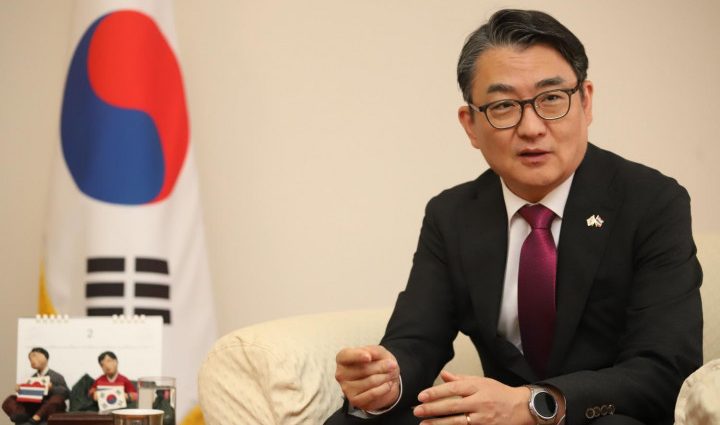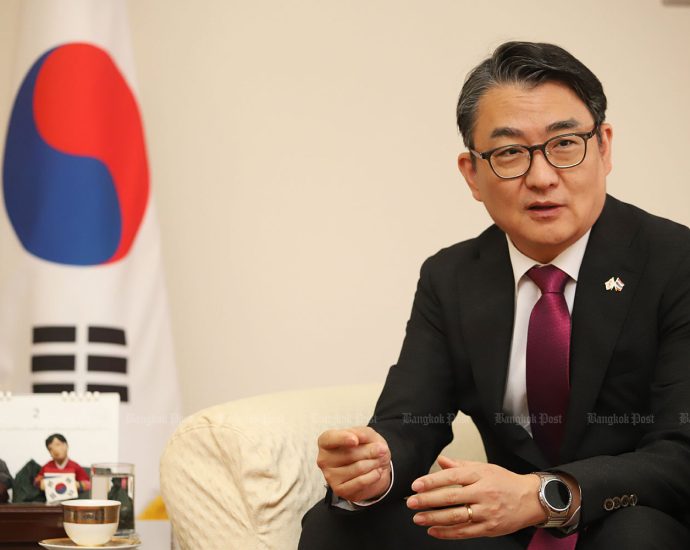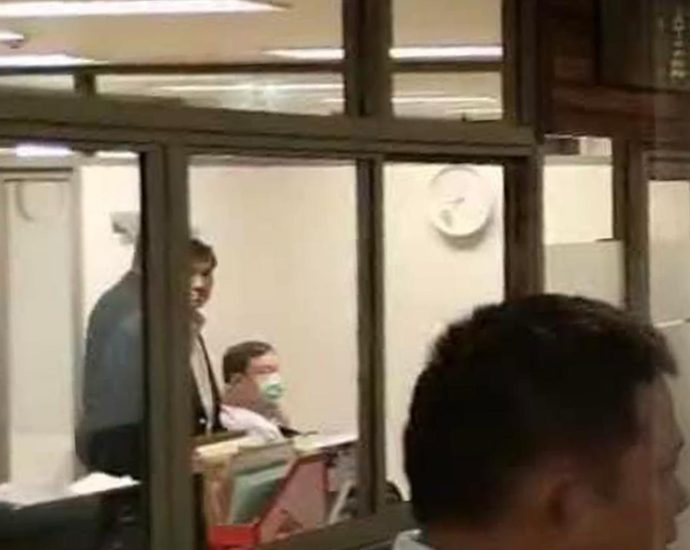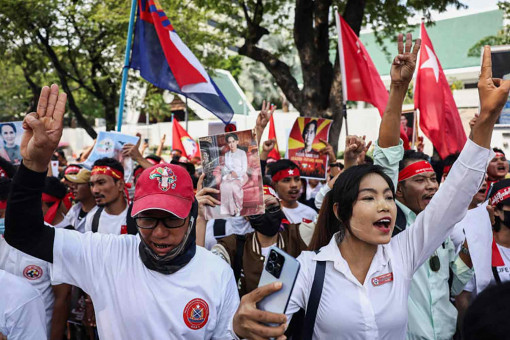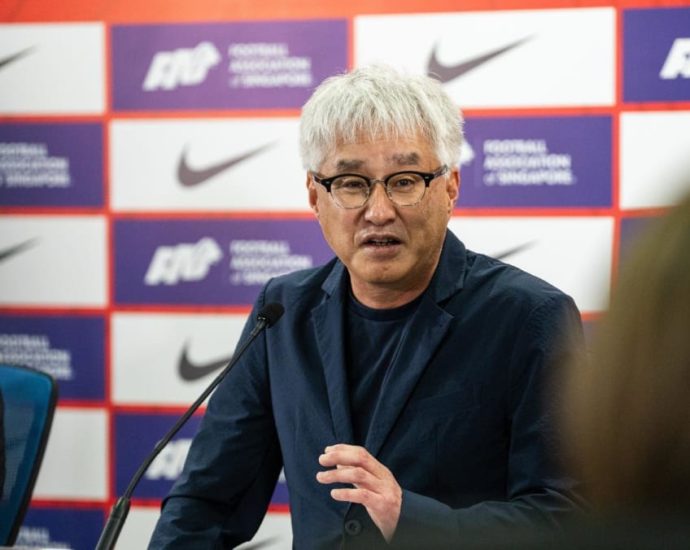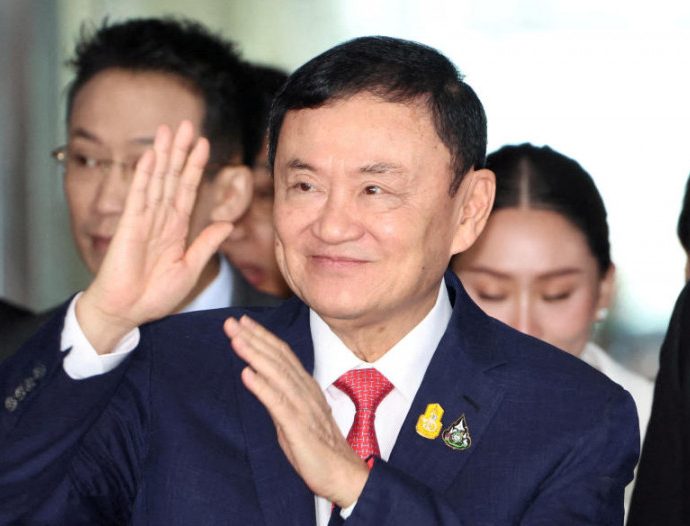Building on solid foundations

Despite the recent outrage surrounding the mistreatment of Thai travellers by South Korean immigration officials, the country remains committed to strengthening bilateral ties so both countries can move forward together, assured the new South Korean ambassador to Thailand, Park Yong Min.
In a recent interview with the Bangkok Post at the South Korean embassy in Bangkok, the new ambassador shared his thoughts on Thai-Korean relations, the nation’s soft power push, and what could be done to strengthen ties between the two countries.
Longstanding ties
According to Mr Park, Thailand was one of the first nations to join the Korean War immediately after it broke out in 1950, even before the kingdom formally established diplomatic ties with Seoul in 1958.
Koreans feel a heartfelt gratitude for Thailand’s early involvement in safeguarding democracy and freedom on the divided peninsula, the new ambassador said.
Last year, Thailand and Korea celebrated the 65th anniversary of the establishment of diplomatic relations.
A summit between the two countries was held in September, shortly after the formation of the new Thai government, at the UN General Assembly.
Then, the 4th Policy Consultation at the Vice-Ministerial level was conducted in November.
“Looking ahead, as an ambassador, I would like to explore more avenues for bilateral cooperation,” he said, adding he was particularly interested in enhancing the scope of economic cooperation between the two countries while he is in office.
South Korea, under the Republic of Korea-Mekong cooperation framework, will continue to be involved in the region’s security, environment and economic development, especially since the Mekong sub-region continues to grow in strategic importance.
The cooperation has expanded rapidly since its initiation in 2011, he said, with its elevation to a summit in 2019 and the establishment of a strategic partnership in 2020.
The joint efforts across the Mekong region have become more focused following the announcement of Seoul’s Indo-Pacific Strategy and the Korea-Asean Solidarity Initiative (KASI) in November 2022.
“As part of the ‘Korea-Asean Initiative’, there are plans to actively contribute to the Korean-Mekong Cooperation Fund by doubling the annual contribution from $5 million [180 million baht] in 2022 to $10 million in 2027.
“South Korea also has plans to join the Mekong River Commission (MRC) as a development partner,” he said.
On Soft Power
Last year, the Thai government set up the National Soft Power Strategy Committee to foster the country’s social and economic development through the promotion of creative arts and culture, including film, art, literature, food, music festivals, tourism, sports, and fashion.
The ambassador said that the success of South Korea’s soft power was partly due to the government’s support of cultural content promotion policies in the 1990s.
Government initiatives, which included the establishment of a cultural industry department to nurture the industry, were key, he said, adding that state support, including financial and tax assistance for startup ventures, especially in the visual arts industry, was a great help.
According to Mr Park, the esta- blishment of major cultural facilities such as the National Museum of Modern and Contemporary Art, the National Theater of Korea, the National Gugak Center, as well as the Korean Academy of Film Arts since the 1980s were also very beneficial to the nation’s soft power development.
“The government played an important role in fostering an environment that is conducive to investments and cultural exchanges, allowing private companies to exhibit artists’ creative potential by respecting freedom of expression, artistic freedom, and cultural diversity,” he added.
“I have every confidence that the Thai soft power policy will continue to flourish,” he said, adding that Thailand is blessed with its rich traditions and the two countries will be as great partners in promoting cultural initiatives.
The South Korean embassy, Korean Cultural Center and Korea Creative Agency Bangkok Center will support the Thailand Creative Content Promotion Agency, which will see more collaboration between South Korea and Thailand.
Resolving #banKorea
Several reports on the mistreatment of Thai tourists by South Korean immigration officials recently caused the hashtag #banKorea to garner a lot of negative attention on Thailand’s social media channels.
The ambassador said both governments are aware of the issue and are making efforts towards resolving the underlying problem.
Mr Park assured that authorities in Seoul are making an effort to ensure such incidents won’t happen again.
For instance, he said, immigration authorities are working to increase the availability of Thai interpreters at major points of entry, as well as educating their officials to improve their sensitivity towards cultural differences.
“Thais as our long-standing true friend. We are determined to resolve this issue,” he added.
There is increasing concern over illegal Thai workers in South Korea after one of them was found dead recently.
The ambassador said that the rapid increase in illegal stays does not only distort the labour market but also undermines the rule of law.
He explained that illegal migrants are vulnerable to human rights violations, and they may cause social conflict in the long run. However, he insisted that even foreigners residing illegally are entitled to protection under the law, including a minimum wage guarantee.
There are systems in place to allow them, under certain circumstances, to receive police assistance without being reported to immigration, he said.
“However, it is challenging to fully safeguard the rights of those who are residing in the country illegally.
“Fundamentally, it is crucial to drastically reduce illegal stays,” said the ambassador.
“To achieve this, the Korean government, along with the Thai government and its citizens, must work together,” he said.

